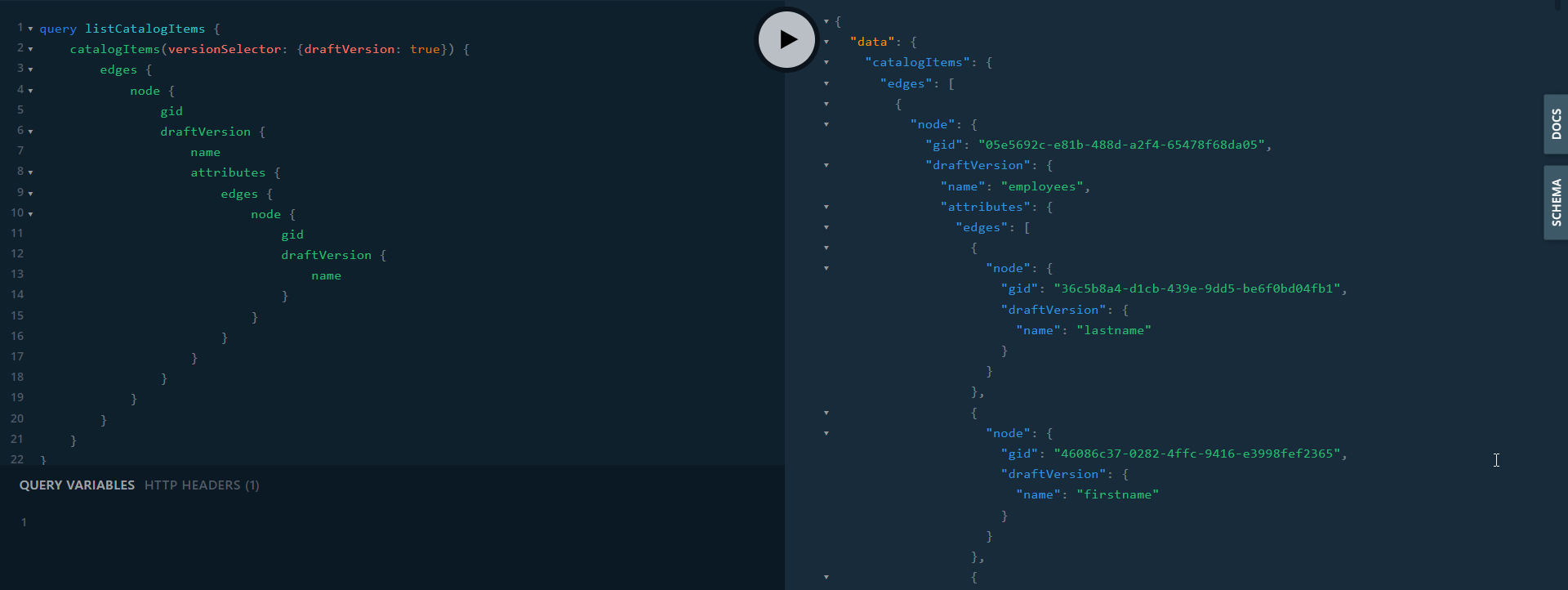Querying APIs via GraphQL
Did you know that your ONE solution already comes with a preconfigured GraphQL interface that can be used to run API queries in your web application?
The GraphQL Playground is available at the following URL: <web_app_URL>/playground.
You can use the queries for a wide range of operations to read or manipulate data in the Ataccama application, for instance:
- Listing your Catalog Items, associated Terms or Connection Sources
- Checking the status of your Catalog items
- Trigger a Profiling of a Catalog item
- Publish an Entity from a Draft state
- … and many more!
Example
List all available Catalog items via a query:

Make sure you get familiar with this powerful feature. Visit the following page and get familiar with the basics via following a series of simple use cases. Good luck!
